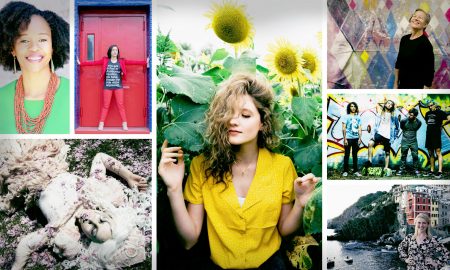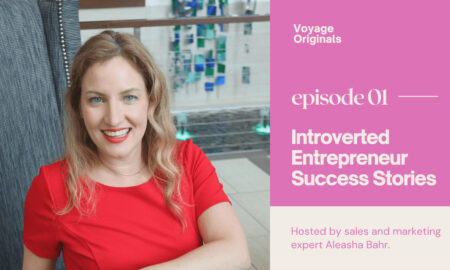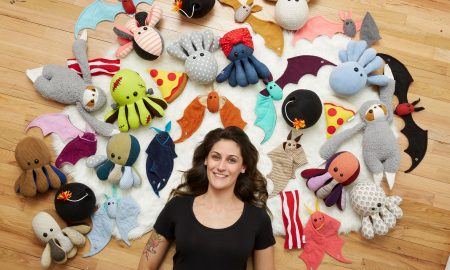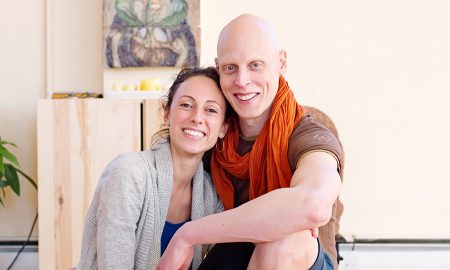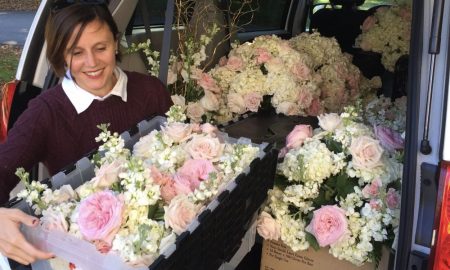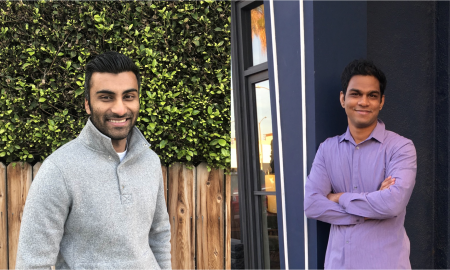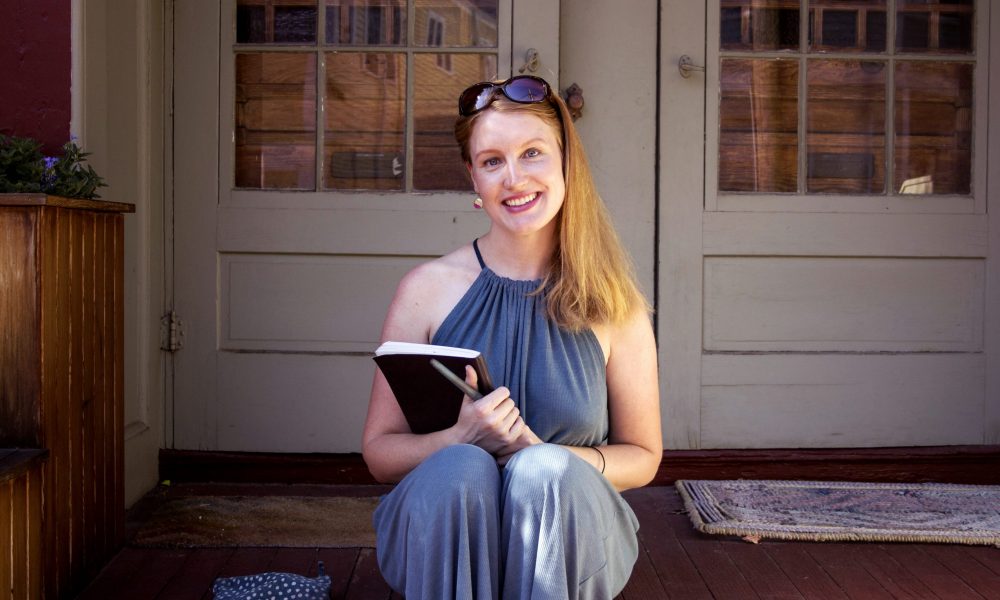

Today we’d like to introduce you to Susan Coyne.
Susan, let’s start with your story. We’d love to hear how you got started and how the journey has been so far.
Over the years, I’ve worked as a teacher, editor, translator, tutor, and writer, so it was only natural that I become a full-time illustrator next. Actually, weirdly enough, I didn’t even know the illustration profession existed until about six years ago. I’d been planning to apply for a Masters of Fine Arts or Animation, and then Hurricane Sandy hit and I was stuck home, flipping through a School of Visual Arts course catalogue, when I saw samples of illustration and fell in love.
I had never met a real living artist, let alone a living solvent one, growing up, so I had no idea you could do this for a living. Early after college, I thought maybe I’d get a Masters in International Relations and apply for the Foreign Service. I’d majored in Religion and Japanese as an undergrad, studied abroad in Kyoto for a year, and moved to a tiny seaside town in Japan for two years after graduation. There wasn’t much to do after work besides take tea ceremony lessons and visit the lone cafe a 20-minute drive away, so I often snuck back into school to oil paint. I realized then that painting was what I needed to pursue. I was 24 when I told myself I had to be an artist, and it only took the next seven measly years for that to come true.
In 2010, I attended a program at the School of the Museum of Fine Arts, Boston (SMFA) to learn basic media skills. Then I worked as an assistant and lab manager for an immunology professor from Japan. At night, I took Photoshop classes and built up an illustration portfolio. I started a part-time Masters in London in 2013 while writing study guides and getting an ulcer from the London living costs, but then I applied again to the School of Visual Arts in New York, my dream school, and finally got in in 2014. I graduated with an MFA in Illustration from SVA in 2016.
Great, so let’s dig a little deeper into the story – has it been an easy path overall and if not, what were the challenges you’ve had to overcome?
Deciding to go to art school is never an easy choice when you look at it economically. You spend a decade developing a craft and accruing debt, but you’re not really paid a salary commensurate with your experience. I still haven’t reached my pre-MFA income levels as an illustrator, but I hope to in the next year. It has taken a while for me to be comfortable pricing my work — especially as a woman, you sometimes get pushback for asking for appropriate pay. I’m definitely more comfortable pricing my work than I was even two years ago.
Being my own agent and accountant and lawyer and publicist, I’ve learned the importance of being unendingly persistent. Freelancing often involves writing that fifth follow-up email to a client (about your pay or contract), but you have to bite the bullet and do it. It can be a bit dispiriting to chase jobs, but on the other hand, there’s a lot of freedom in being a freelancer that would be hard to trade for a 9-5 again.
Coyneworks – what should we know? What do you do best? What sets you apart from the competition?
I run Coyneworks Illustration, which specializes in editorial illustration, book illustration, portraits, and live drawings. For the past two years, I’ve illustrated for a weekly radio show called Open Source with Christopher Lydon on WBUR (Boston public radio). My drawings covering each week’s show topic are used for Open Source’s social media accounts and on their website.
I do live paintings of lectures and events. I’ve worked with Radiotopia/PRX and the Independent Film Festival Boston, and have covered the MIT Online Humor Series, author talks at Harvard Book Store, and journalism talks at the Shorenstein Center. I go to a lot of writers’ talks. This year I made a drawing of Adam Gopnik which he told made it look like he was “piddling his pants.” Its ineffable moments like these that I live for. I think my live drawing sets me apart from other artists because I work quickly and can do a full watercolor spread in 30-45 minutes, complete with salient quotes from the talks I go to. I think it’s rare to work on paper these days. Most people I know work on tablets.
I sell a couple of my books as well. One is a nonfiction picture book called The ABCs of Subverting the Patriarchal Paradigm, which I had initially been commissioned to make as a prop for Netflix movie The Incredible Jessica James. The director, Jim Strouse, had given me the title of the book and asked me to illustrate and write it. Now I sell it online, in independent bookstores, and at markets like the Central/Davis Flea Markets. I have another book, A Brief History of Man and Dog, which was my MFA thesis book — 72 pages of dog drawings, stories and essays — which I just self-published after enough dog enthusiasts asked for copies.
I do a lot of commissioned watercolors paintings, mostly of engagements, babies and pets. I send clients watercolor paintings of the photos they email me. That constitutes about half of my time and income.
What moment in your career do you look back most fondly on?
This year has been an exciting one for my live drawing business, since I was able to pitch being the on-site illustrator to a couple of festivals. I made live drawings of events at the Independent Film Festival Boston in April. I love movies, so it was a treat to go to eight movies and Q&As in a week.
I also illustrated Radiotopia’s live tour in May, at the Wilbur Theatre in Boston. Radiotopia is a collective of great podcasts like the Allusionist, Criminal, and 99% invisible. I’m a podcast fiend so this was the equivalent of being among Hollywood stars. Allusionist host Helen Zaltzman chatted about my sketchbook with me backstage which was perhaps my highlight of 2018. I designed a poster of ten pages’ worth of live drawings for the Radiotopia team. These two projects allowed me to do illustration work I really cared about and I’d love to pitch more passion projects in the future.
Pricing:
- Prints $15-$30
- Books $25
- Watercolor commissions starting at $225
- Tote bags $20
Contact Info:
- Website: http://www.coyneworks.com
- Email: studio@coyneworks.com
- Instagram: https://www.instagram.com/coyneworks/
- Twitter: https://twitter.com/coyneworks
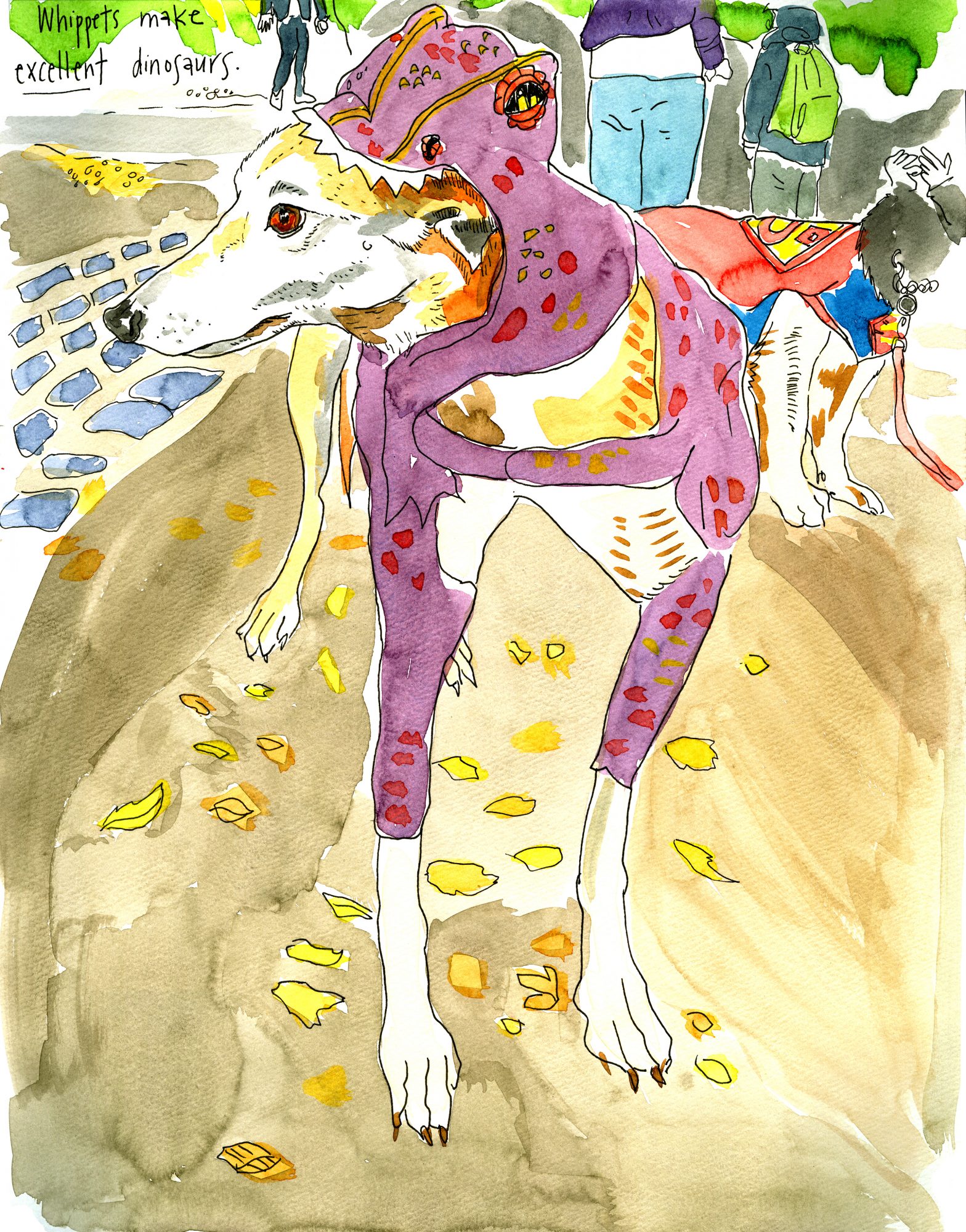
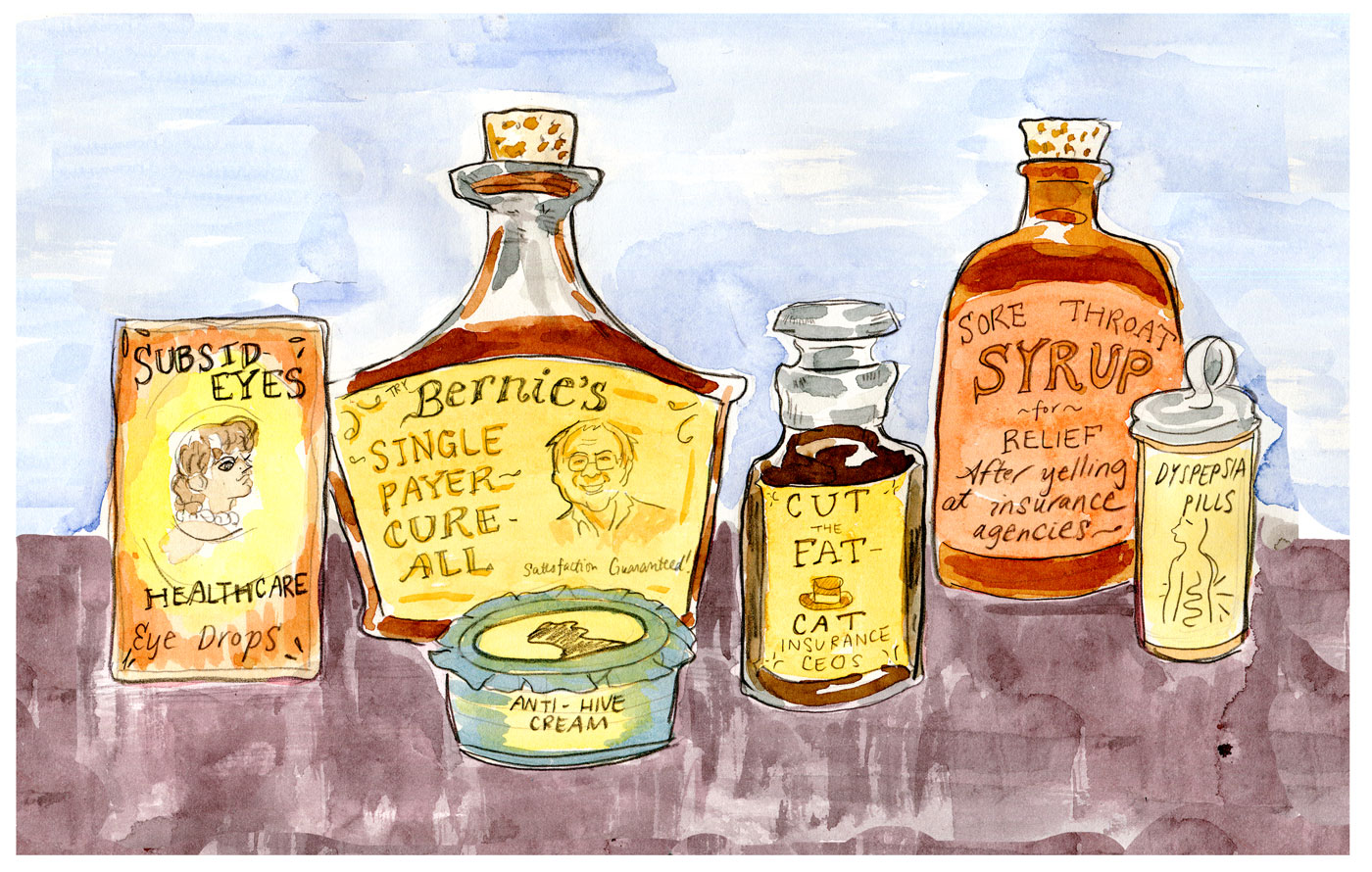 Susan Coyne for Radio Open Source (2017)
Susan Coyne for Radio Open Source (2017) 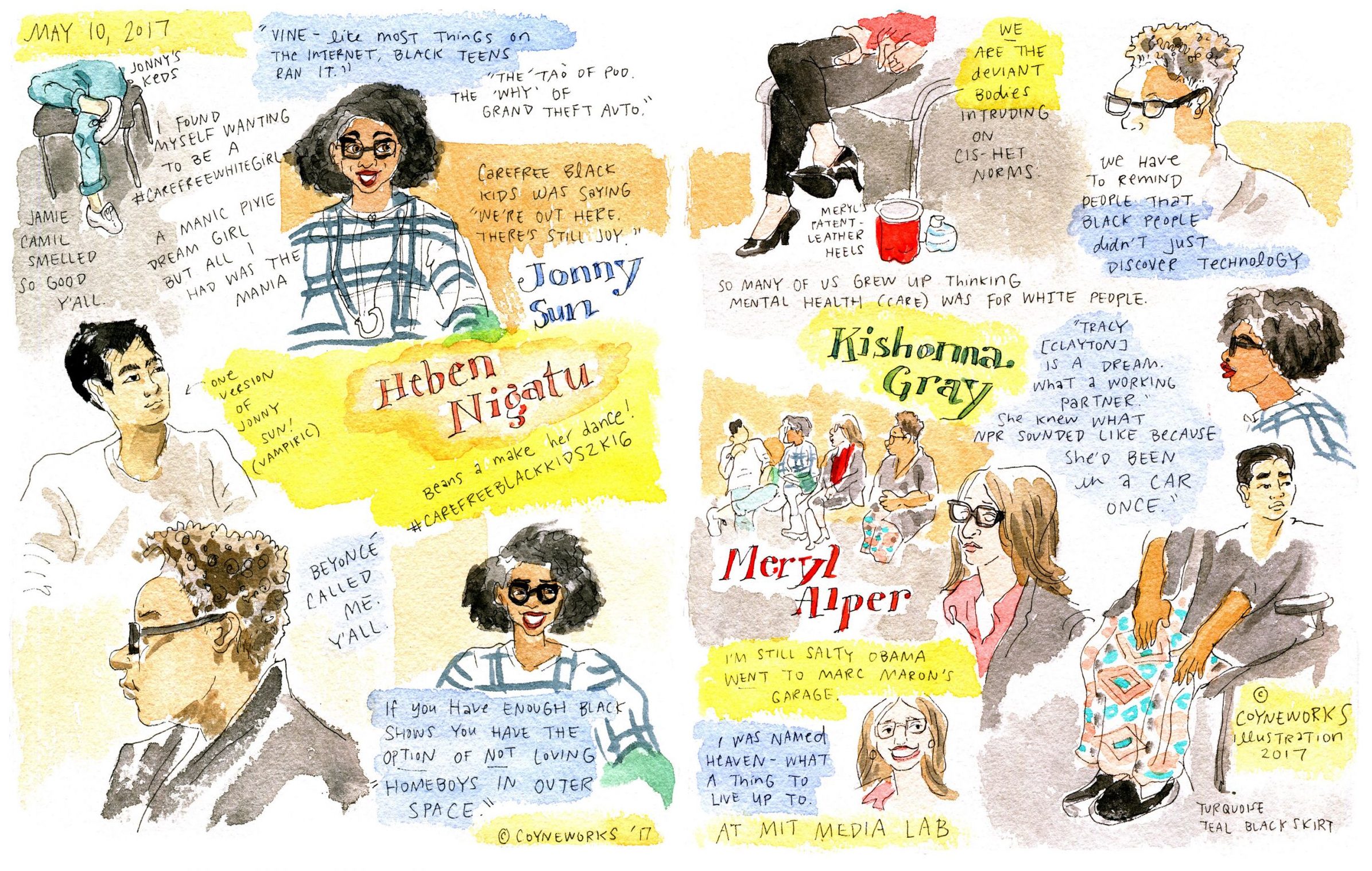 Susan Coyne for the MIT Online Humor Series (2017)
Susan Coyne for the MIT Online Humor Series (2017)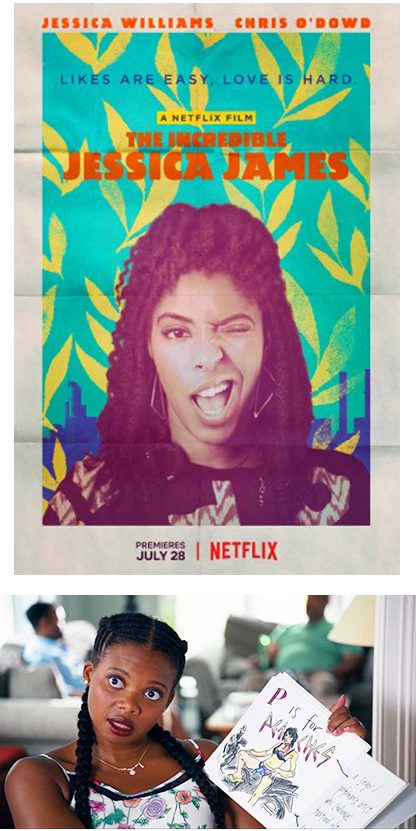
Susan Coyne for Netflix/Beachside Films
 Susan Coyne for Radio Open Source (2017)
Susan Coyne for Radio Open Source (2017)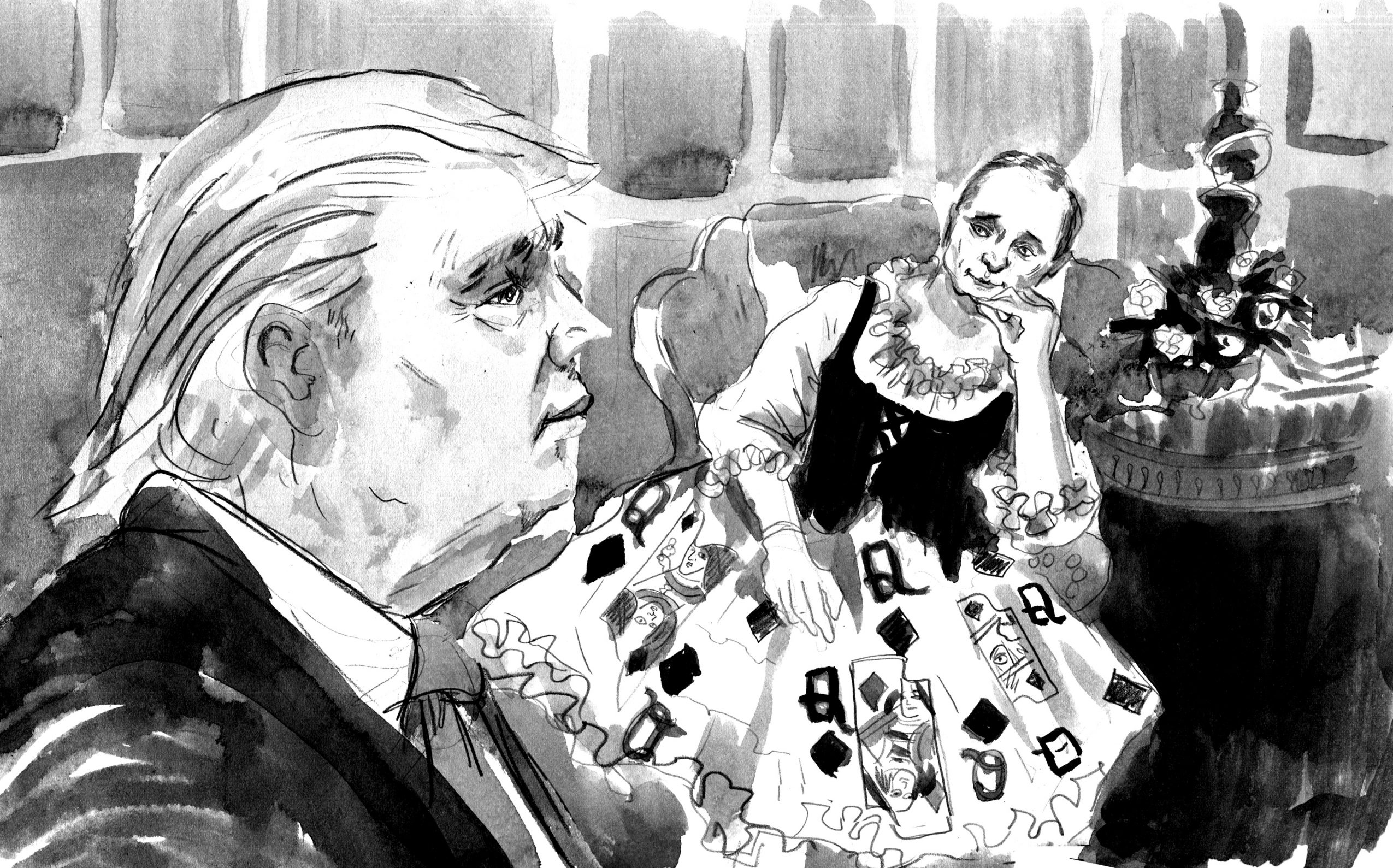 Susan Coyne for Radio Open Source (2018)
Susan Coyne for Radio Open Source (2018)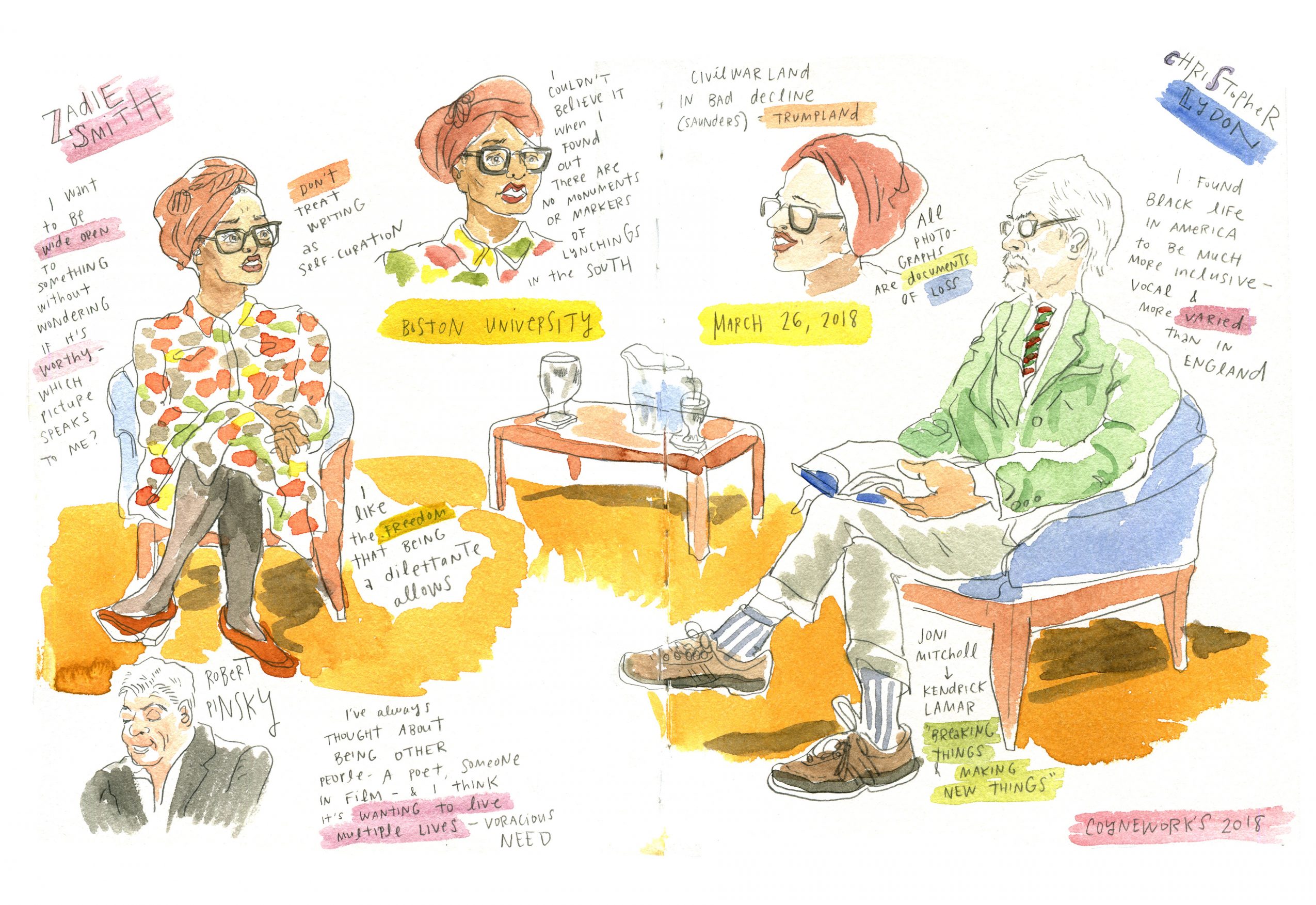
Getting in touch: BostonVoyager is built on recommendations from the community; it’s how we uncover hidden gems, so if you know someone who deserves recognition please let us know here.

